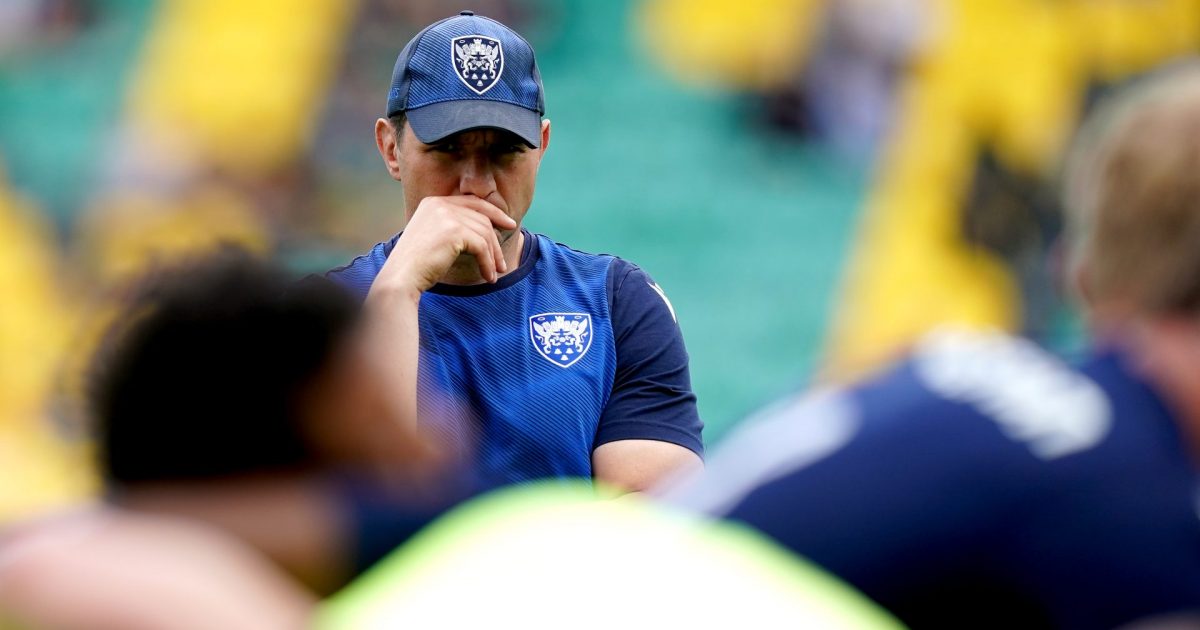The thing giving Northampton 'a lot of confidence' in coach change

Mark Darbon has insisted that Northampton explored every possible avenue before confirming this week that they were happy for current assistant coach Phil Dowson to succeed Chris Boyd as their director of rugby as the end of this season. When the previous incumbent Jim Mallinder was ousted following a collapse in his team’s form at the end of his mostly progressive era in charge, the Saints went to the other end of the world to find a replacement.
Boyd had spruced up his credentials when guiding the Wellington-based Hurricanes to its first-ever Super Rugby title in 2016 and when it came to Northampton acquiring a replacement for Mallinder, who exited in December 2017, they had no qualms about doing whatever was needed to bring the New Zealander to Franklin’s Gardens after Australian Alan Gaffney had taken temporary charge for the first six months of 2018.
This time around, Northampton have opted not to go the southern hemisphere route to source a successor to Boyd, who is returning to New Zealand for family reasons. However, in deciding to promote from within at the Saints, the club insist they didn’t just take the quick and easy option to fill the position.
Instead, Darbon assured RugbyPass that they did their homework and only then came to the conclusion that the promotion of Dowson to the director’s role and Sam Vesty to the head coach position was the best option as the rookie Northampton management team will also retain the input of Boyd who will check in as a consultant from back in New Zealand.
“This is our own plan,” explained Darbon, who insisted that Northampton hadn’t looked to any other club and copied their idea. “My view is there is always very different circumstances in different clubs. It is not my role to comment on how other clubs have done this. Of course, we looked at the market and considered our alternatives as we built this plan.
Boyd apologised to the referee in question for the comments before being cited ?https://t.co/NRQ0XkcvKT
— RugbyPass (@RugbyPass) January 14, 2022
“We always had this as our plan A, we were clear on the individuals that we wanted to be part of our setup and how that may evolve over time so we have always had this plan. At the same time, you have got to be quite careful not to blindly follow a plan if it is no longer relevant or if it is no longer right.
“We feel excited because we feel we have made good choices in our coaching group and we think now is an appropriate time for them to step up and what is really interesting about our model is we are promoting from within, we are promoting a relatively young group but we are doing so in a very stable environment.
“If you look around the league, often choices have been made when people have lost their jobs or there have been periods of stress or underperformance or whatever you want to call it. We feel very settled and actually, we think continuity is a big part of achieving the success that we are so desperately craving at the moment and that gives us a lot of confidence for this transition.”
How does Dowson, the 40-year-old ex-England back-rower, shape up personality-wise to Boyd, the wise-cracking 63-year-old Kiwi with a wealthier coaching experience behind him? “They are very different characters, that is for sure, but they actually share quite a few similar traits. They are both big leaders,” continued Darbon ahead of this weekend’s Champions Cup match at home to Ulster.
“You will have seen that from Phil Dowson in his playing career, he was a leader here (at Northampton), captained the side here, has always had the respect of players and staff within this organisation and what he has been able to do really effectively is take the leadership skillset that he developed as a player and quickly applied that from a coaching perspective.
“He and Chris are also both extremely good communicators. They have a very, very different communication style but in their own way, they are very good at motivating and rallying the squad and bringing clarity to what we are trying to achieve both in the short term and in the longer term.
“Those key traits, leadership and strong communication, we believe give you a really strong platform to work from when you are taking on an extremely difficult role as a director of rugby that is craving success. Phil has undoubtedly developed that skillset under Chris and he will have also learned a lot about the intricacies of the role because he has had a lot of exposure to that.
“Chris gives a lot of autonomy and creates an environment where there is a lot of involvement for the coaches. Phil has had a great chance to assimilate that knowledge and learn from it and we think that will stand him in good stead.”
































